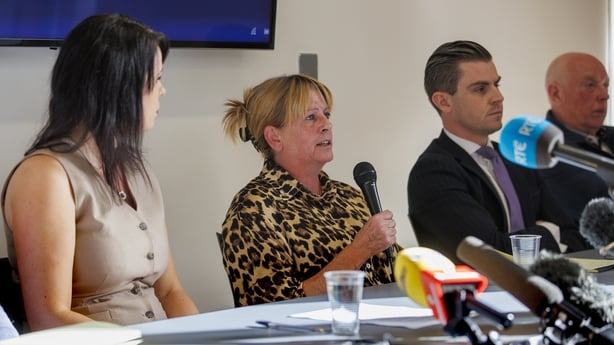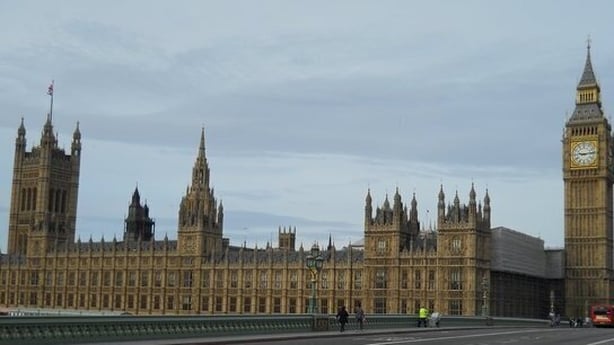Amnesty International has accused the UK of betraying victims of the Troubles and urged the Irish Government not to drop its legal challenge against hugely controversial British legislation in the European Court of Human Rights.
The Irish Government initiated an inter-state case against the UK last December to challenge legislation to deal with the legacy of the Troubles, which ended all criminal and civil investigations and inquests.
When in opposition, the British Labour Party pledged to repeal the legislation, but since coming to power it has said it wants to retain some elements, including a commission to examine unsolved killings.
That body, the Independent Commission for Reconciliation and Information Recovery, is opposed by the vast majority of groups representing victims of the Troubles.
On Friday, the Northern Ireland Office revealed that the British government is also seeking to challenge a Court of Appeal ruling that core parts of the Legacy Act were in breach of human rights law.
In a statement to the Reuters news agency, the NIO said it still intends to repeal and replace the legislation, but confirmed that it lodged an application seeking leave to appeal the judgement in the UK Supreme Court.
Amnesty International and solicitors representing relatives of a number of people killed during the Troubles today accused Northern Ireland Secretary of State Hilary Benn of going back on his word.

He said shortly after taking office that his government was committed to repealing and replacing the legislation and re-instating inquests.
"Seeking to appeal the Court of Appeal judgement raises very significant questions about the UK government's commitment to their own promise to repeal and replace the Troubles Act," Gráinne Teggart, Deputy Director of Amnesty Northern Ireland told a press conference in Belfast.
"The decision is a betrayal of the UK Government's commitments and fails victims who expected repeal to mean repeal.
"The decision marks the continued dilution of a categorical pledge by Labour prior to the election that they would right the wrong of the last government on legacy."
Martina Dillon, whose husband Séamus was shot dead by loyalists at the Glengannon Hotel in Dungannon, Co Tyrone, in December 1997 said she was "disgusted" when told about the British government's appeal by her legal team.
The inquest into her husband's murder was prematurely ended when the Legacy Act came into force on 1 May this year, and brought down a legal guillotine on all inquests.
Labour has pledged to reinstate inquests, but has not yet done so.
"The Secretary of State has went against us, he's turned his back on us," she said.
"A year ago the Secretary of State stood up and he bad-mouthed the last government we had in and he said he was against the Legacy Act, and now he's doing exactly the same on is. He's making fools out of us all, we're not going to stand for it.
"Why will they not give us our inquests? What is the government hiding? What do they not want to come out? I'm disgutsed, absolutely disgusted."
Solicitor Darragh Mackin said the British government had an obligation to deliver on its commitments.

"Last year this government in opposition confirmed their intention to appeal the Legacy Act," he said.
"Those were shallow words. They should now practice what they preach. Instead of resolution, this government has committed itself to the old ways of the former government expending invaluable time and money on endless litigation and appeals. Enough is enough."
The British government has expressed the hope that Ireland will drop its inter-state case as part of what was described by Taoiseach Simon Harris as a "reset" in British-Irish relations.
Amnesty today said the legal challenge in the European Court of Rights should remain until the Legacy Act is completely repealed and replaced.
"It is critical that the Irish Government hold to their inter-state case, at no point should that case go anywhere until such times as we see the detail of replacement legislation," Gráinne Teggart explained.
"It is essential that the Irish Government continues to stand with victims through that inter-state case and also with their negotiations with the UK Government about what this legislation, this new legislation, should look like."
On Saturday, a group of more than 60 families who lost loved ones during the Troubles said they would not cooperate with new British government arrangements to deal with legacy.







